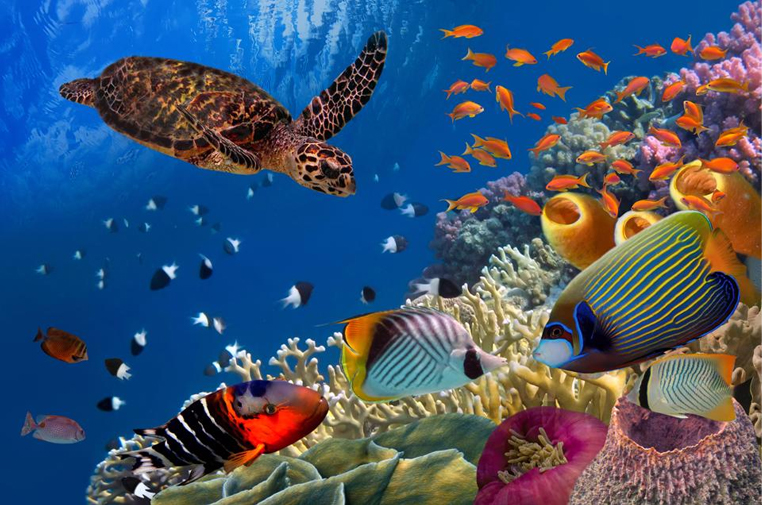However small, Cocos Island (12 miles around), is one of the gems of Costa Rica’s Public Parks and an UNESCO assigned World Legacy site. It is the main island in the eastern Pacific containing an equatorial jungle.
Furthermore, in Walk 2011, an astonishing, extraordinary occasion happened.
An occasion of phenomenal administration.
On that day, and with a stroke of its leader’s pen, Costa Rica made a goliath stride in practical turn of events and protecting marine biodiversity, making a gigantic marine preservation region of 1,000,000 hectares around one of the most renowned of all Costa Rica public parks.
To place this into viewpoint, the marine safeguarding region around Cocos was extended five-overlay, making it the second biggest marine administration in the eastern Pacific. Just Galapagos is bigger.
It was a “day of public pride” for Costa Rica and no joking matter for world marine preservation.
Cocos Island, lying somewhere between Costa Rica and the Galapagos Islands, has for some time been perceived as one of Costa Rica’s Seven Miracles. It sits on a seamount (a submerged mountain range), so stunning, so superb, so loaded up with marine creatures that it propelled the popular undersea pioneer, Jacque Cousteau, to pronounce it “the most gorgeous island on the planet.”
Once, there were such countless sharks swimming its waters that it was much of the time called Shark Island.
Researchers, moderates, TV shooting teams, and scuba jumpers came from around the world to encounter its miracles. They were welcomed a dumbfounding number of huge marine creatures. Sharks as well as beams, fish, porpoises, ocean turtles, and significantly more.
Also, obviously, anglers observed too. Not a couple of colleagues making a living yet gigantic, business fishing tasks that have been compromising Cocos’ abundance for quite a long time.
Unreasonable modern fishing and unpredictable killing on a scale so enormous the vast majority of us couldn’t envision it.
Most exceedingly terrible of all are the processing plant fishing boats which, looking for shrimp, drag the ocean bed with goliath nets the size of football handles that gather up colossal measures of shrimp as well as tremendous measures of “result”, scavangers, corals and wipes, ocean turtles, grown-up and youthful fish, and everything in their way, abandoning gigantic areas of sea floor practically lifeless.
Furthermore, what befalls this “result?” Its greater part is tossed over the edge, disposed of. Waste. Billions of animals, youthful and old the same. Nothing is saved.
Marine ecosystems that took ages to frame gone in hours. Life supplanted death.
Modern fishing boats are pulverizing our seas and are the most disastrous of all human activities including our oceans. Nothing else looks at.
Consistently production line fishing boats drag what might be compared to two times the size of the mainland US, kicking up crest of residue so enormous that they are apparent, in a real sense, from space, abandoning whole dormant marine ecosystems.
Once, the external banks off Newfoundland were so brimming with cod that, in 1497, the English voyager, John Cabot, commented that they obstructed his boat. For north of a long period, 250,000 tons were gotten consistently. Regardless of the admonitions of researchers, production line fishing boats from around the world kept coming until in 1992, the whole fishery imploded.
A huge number of anglers lost their job and the fishery must be shut.
What has been going on with the production line fishing boats? They just continued on for, all things considered, they’re essentially sharks in it for the present money. The future be accursed.
Honestly, the seas aren’t being fished to such an extent as pillaged, pulverizing or previously obliterating 75% of the world’s fish stocks at a yearly overall monetary deficiency of $50 billion-misfortunes frequently concealed in government endowments.
Monetary and fishing misfortunes that are completely avoidable, pointless, and unreasonable.
That’s what the World Bank gauges, with legitimate administration, practical fisheries can go from an immense worldwide financial misfortune to a monetary excess, drive monetary development, and reestablish fisheries.
Tragically legitimate fisheries administration is hard to come overall and political will essentially nonexistent.
With a couple of exemptions, similar to Costa Rica.
For a really long time, this little nation, involving around 1/10,000 of its surface region, has driven the way towards practical turn of events. It has saved almost 25% of its territory for parks and jelly, replanted around 25% of its backwoods, is on target to be the principal carbon unbiased country in the world before this decade’s over, and has pronounced that it needs to end man’s constant conflict with nature and bury the hatchet with it:
“Costa Rica is a little nation, however it tends to be an extraordinary pioneer. Almost a long time back, we turned into the primary country on the planet to cancel our military. Today [2008], we try to leave a mark on the world and turning into the principal country on the planet to safeguard its public miracles, ashore and under the ocean, in ceaselessness.” – – – Previous Costa Rica President Oscar Arias
That vision, that responsibility, that administration, is carried on President Laura Chinchilla, who made the superb Seamounts Marine Administration Region in Walk 2011, enormously growing the safeguarded waters and seamounts around Cocos Island to almost 4,000 square miles.
Significant living space to numerous species, including profoundly jeopardized scalloped sharks and old leatherback ocean turtles, is currently saved into ceaselessness. Modern fishing vessels will not demolish this marine ecosystem.
Life and an ecosystem that took ages to shape will keep on prospering. Not any more gigantic tufts of sand- – – indications of death- – – apparent from space.
a long time back, President Ulysses S. Award made the world’s most memorable public park, Yellowstone, safeguarding a whole earthly ecosystem from taking advantage of go getters.
Great administration, Mr. President.
Seamounts Marine Administration Region is significantly greater than Yellowstone and jam a whole marine ecosystem. A merited “day of public pride for Costa Rica.”

